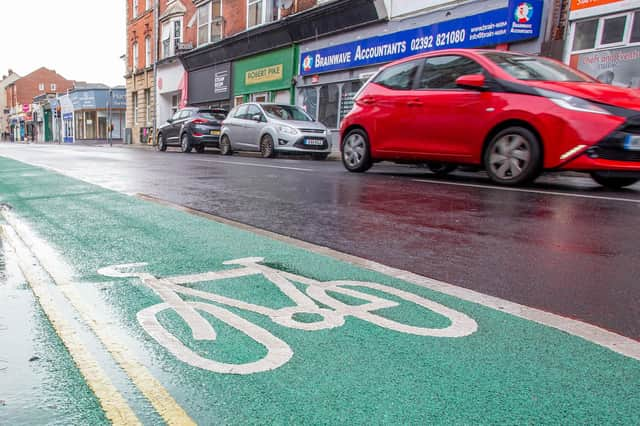Cycling UK makes the case for Southsea's Elm Grove cycle lane


Customers will stay away if there’s nowhere to park…no-one will use it…the damage to business will be worse than Covid!
The last one is certainly a new one on me, but opponents of the introduction of new cycle lanes often repeat the same well-rehearsed fears which aren’t backed by evidence.
Advertisement
Hide AdAdvertisement
Hide AdNobody likes change, particularly when you’ve already been through six months of disrupted trading as it is. It’s easy to understand why business owners and residents might react negatively towards the idea of something being taken away like the temporary removal of parking in Southsea for the installation of fully segregated cycle lanes in Elm Grove and Kings Road.
But to say that the effect of the scheme could be worse than that of a global pandemic is just irrational. After all, the scheme is a temporary measure for an initial three-week trial period with further consultation to follow if Portsmouth City Council considers making the scheme permanent. Retailers, shoppers and local residents need to see how those three weeks go before jumping to any snap judgements.
Creating more space for people to walk and cycle makes sense – business sense. The contribution those who walk and cycle make to the vitality of town centres is often overlooked and nearly always underestimated.
If you shop by car, yes, you’ll spend more than someone cycling – but usually this is at the out of town centre shopping centres. Studies show while someone cycling may spend less on a single occasion than someone driving, their total expenditure is, on average, greater as they tend to visit the shops more often.
Advertisement
Hide AdAdvertisement
Hide AdA survey of shoppers in 15 locations in the capital found those who arrived by car did not spend much more on average than those who arrived by cycle - £226 and £188 respectively per month - walkers were the big spenders: £373).
At the same time, car-dependence is a significant cost for society in terms of congestion; road danger and casualties; physical inactivity and the ill-health resulting from it, pollution and noise; and contribution to climate change.
A cycle friendly district isn’t just a nicer, greener place to be, it’s actually somewhere you’ll hear the sound of tills ringing too. Retail turnover in pedestrianised areas generally outperforms non-pedestrianised areas and shop vacancy rates are five times higher on streets with high levels of traffic than those without.
Making Southsea more people-friendly – which means more cycling and walking friendly – might be just the cure the high street needs.